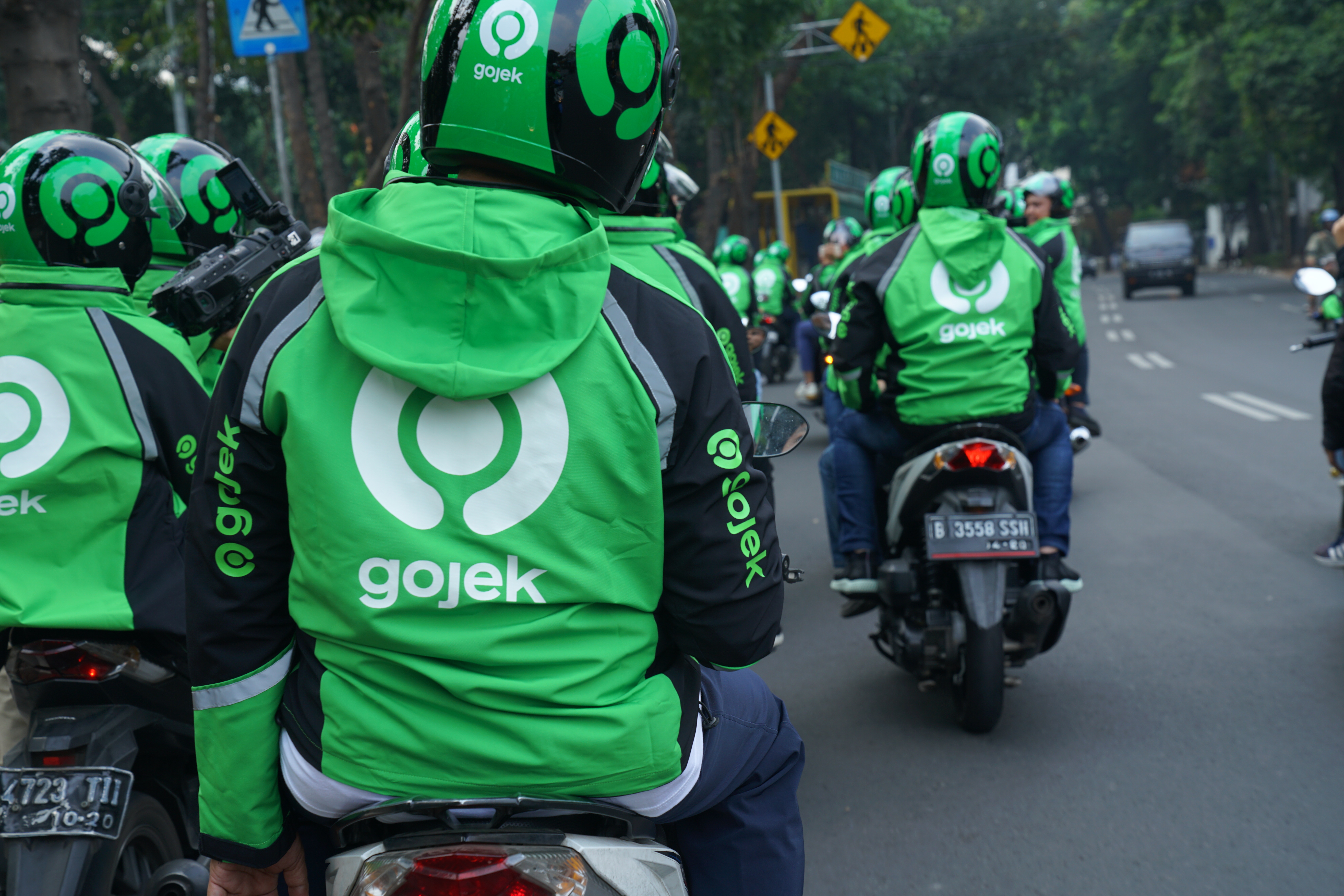Ride-hailing firm Gojek and Indonesia-listed energy company TBS Energi Utama have established a joint venture to produce two-wheel electric vehicles (EV) and related components, according to information disclosure filed with the Indonesia Stock Exchange (IDX) by TBS Energi Utama.
The joint venture, named PT Energi Kreasi Bangsa, also known as Electrum, seeks to build infrastructure for the country’s electric motorbikes ecosystem, including two-wheel EV manufacturing, battery packaging, and battery swap stations, according to the filing. Electrum will also provide financing for EV ownership, based on the record filed with the IDX.
For Gojek, this strategic collaboration with TBS Energi Utama is part of the company’s sustainability plans. Gojeck targets to become a carbon-neutral company with 100% of its fleet composed of EVs by 2030.
To do so, the company is already taking different actions. In November, Gojek partnered with Taiwan-based electric scooter maker Gogoro to operate up to 5,000 e-scooters and at least four battery-swapping stations in Jakarta. Gojek plans to rent out its fleet of electric motorcycles to its driver-partners. Gojek has also launched a carbon offset program called GoGreener, which allows users to calculate and offset their carbon footprint by donating to tree-planting initiatives in Indonesia.
Grab Indonesia is also committed to electrifying its fleets. The company already operates around 8,500 EVs in the country, while it plans to increase this number to 26,000 units by 2025. Grab has also been providing electric motorbikes to driver-partners across the country who do not own private vehicles, according to the company.
Indonesia’s EV ambitions
Indonesia has set a goal to become a global EV production hub. The government has introduced an array of incentives for the EV industry since 2019, including an EV tax scheme for manufacturers, transport companies, and consumers. The country also targets to produce 2.5 million electric motorbikes and 600,000 million electric cars by 2030. This is in line with the government’s commitment to reduce carbon emissions by 41% in the same period.
The transition to two-wheeled vehicles is crucial, given that motorcycles still rule the country’s streets. There were 136 million active motor vehicles in Indonesia in 2020, 84.5% of which were petrol motorcycles, according to a report by DBS.
With these national goals in place, ride-hailing companies are following up on converting their fleet to EVs. This transition will help create more demand in the market for related EV infrastructure, especially charging stations, according to Dhenny Yuartha, an analyst at the Institute for Development of Economics and Finance.
“If the supply of electric vehicles continues to increase driven by ride-hailing companies, the government will have to be more aggressive in building infrastructure,” Yuartha told KrASIA.
“Big tech companies see a big potential in the domestic EV industry. They have the capabilities to be pioneers in EV adoption as they have an extensive partner base. Building an EV ecosystem requires lots of investments, but it will pay off in the future,” Yuartha added.
Aside from Gojek and Grab, other transportation and logistics companies are also exploring opportunities in the EV industry in Indonesia. Taxi operator Blue Bird launchedits first electric taxi fleet in 2019 and plans to have 10,000 EVs in 2025.
In June, logistics firm SiCepat teamed up with IT company NFC Indonesia to form a joint venture called Energi Selalu Baru and acquired local electric motorcycle maker Volta. SiCepat plans to equip its courier drivers with 10,000 electric motorcycles in the near future.
